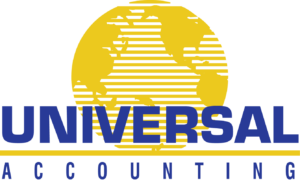When tax season rolls around, most Americans begin to stress, considering all the ins and outs of getting their income correctly reported to the government and trying to get the biggest refund (or minimize tax payments necessary) possible. However, there are some individuals for whom tax season is an exciting business opportunity: tax preparers.
What Is a Tax Preparer?
While the digital landscape has changed the game for how people can file taxes, with many government programs and third-party apps offering a way to do everything—file, pay, receive payment—online, these tools are not one-size-fits-all. Many individuals will begin submitting information via a digital platform only to find that their situation requires more care and personalized attention. In these cases, and in those where the filer either has no interest in filing their own taxes or knows from the beginning that they need special assistance, taxpayers seek the help of a professional tax preparer.
Tax preparers are professionals who assist individuals or businesses with completing, preparing, and filing tax returns. In some cases, such as audits or tax court issues, tax preparers can also help defend a taxpayer against the Internal Revenue Service, but this is decided by their credentials and whether they have legal representation rights. There are different types of accredited and non-accredited tax preparers.
Accredited Tax Preparers
Tax preparers with credentials are typically professionals who work full time in the field of tax accounting all year, such as:
- Tax attorneys who are licensed by their state bar associations.
- Certified public accountants who are accredited by their state boards.
- Enrolled agents who are accredited by the IRS.
Non-Accredited Tax Preparers
There are many other types of careers in tax and accounting that are not accredited positions. These are individuals like tax accountants who have not been certified by the American Institute of CPAs, an employee of an annual filing season program or tax store, and volunteers for the Volunteer Income Tax Assistance program.
Individuals who are only interested in working during tax season may only be interested in positions like these. But, if you’re looking to begin a promising new career as a tax preparer, there’s never a better time than now to start.
What Are the Steps to Getting Certified?
- Take a tax preparer certification course. With Universal Accounting, attaining Professional Tax Preparer certification has never been easier. Not only does our program contain more than 65 hours of training videos, but it also provides access to more than 600 pages of reference and instructional materials in the form of books and worksheets. All Universal Accounting courses are taught by experienced tax accounting professionals ready to teach you what you need to know to get where you want to go. Through courses including Establishing the Tax Foundation, Profitable Business Returns, and Building a Successful Tax Practice, you’ll learn the entirety of the tax preparation process.In each course, the instructors provide real-world examples, solutions, and advice to help you embark on your new path—whether that’s toward starting a small but profitable side-gig or opening a large accounting firm. And you’re not just kicked out the door at graduation. Instead, graduates of the Universal Accounting courses maintain access to our Job Placement Assistance Program. In this program, we help students improve their resume preparation and placement skills, interviewing techniques, and more. Graduates can also work with a personal achievement coach to help them land their next career.
- Apply for a preparer tax identification number. To prepare or assist in preparing tax returns professionally, you need to have a preparer tax identification number (PTIN). It is vital to get this number as early as possible and remember that it needs to be renewed annually. It takes around 15 minutes to apply online and costs $35.95 (which you can pay by credit or debit card).
- Check your state’s requirements for tax preparers. As far as regulations go, tax preparers are bound by different laws in different states. Always remain aware of the requirements and regulations you are responsible for meeting in your state of licensure. States most known for their tax preparer regulations are New York, California, Maryland, and Oregon.
How Much Does it Cost?
Depending on your pace and other factors, you are likely to have to spend around $5,000 a year on tuition, not always including books and other fees. While the cost of becoming a certified tax preparer may vary from state to state, our courses at Universal Accounting have some of the lowest costs for the value and offer a flat rate with no hidden fees. The fee for our 2021 Professional Tax Preparer Program is only $2,719 and does include fees for books and other materials. The affordability aspect is one thing that tends to be a lure for many individuals looking to gain more education to enhance their career, as it is more feasible to pay tuition in one lump sum or take out a small loan to cover the costs (a small price to pay for a new career path in which you can make up to $100/hour).
And, at Universal Accounting, we’re so confident our courses will help you make your dreams of becoming a tax preparer a reality, we offer a money-back guarantee. If you don’t think that your education lived up to expectations at the end of your tax preparation course, you can return your materials and get 100% of your money back (minus interest) guaranteed.
What Is the Timeline?
It typically takes the length of the 60-hour qualifying training course as well as the time it takes to get your licensure registered with the state to become a certified tax preparer. That includes short processes like receiving your PTIN and longer waits such as applying for an electronic filing identification number (EFIN) or state licensure.
After this point, you’ll be ready to jump into your new tax preparation career. You may experience a learning curve on some end of the business or another, be that client relations, tax season navigation, or marketing your services. But with tax preparation, like anything else, all good things come in time.
Ready to start on your journey? Reach out to us for more information and one of our UAC advisors will be happy to get in touch.
Share this post: on Twitter on Facebook on Google+




